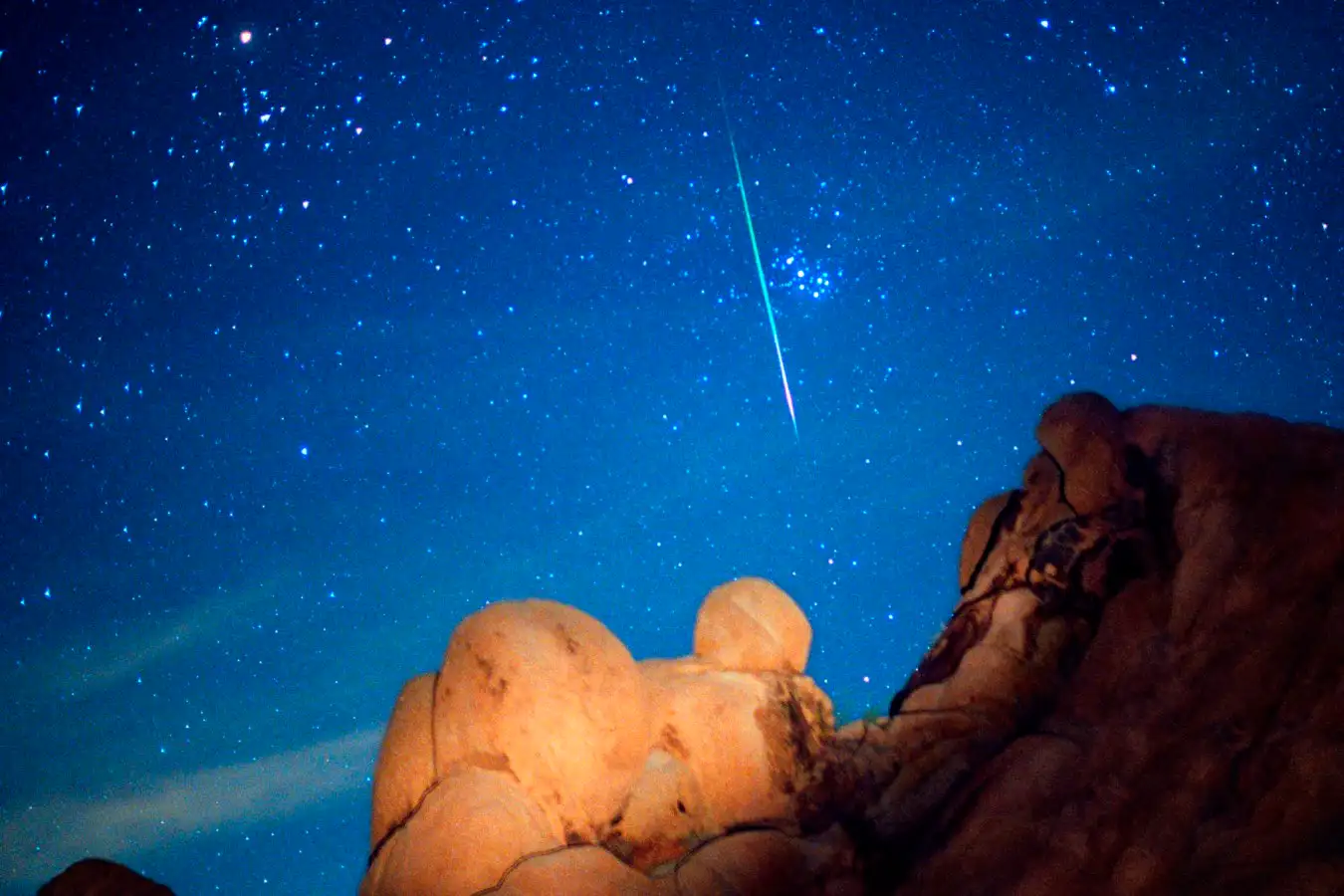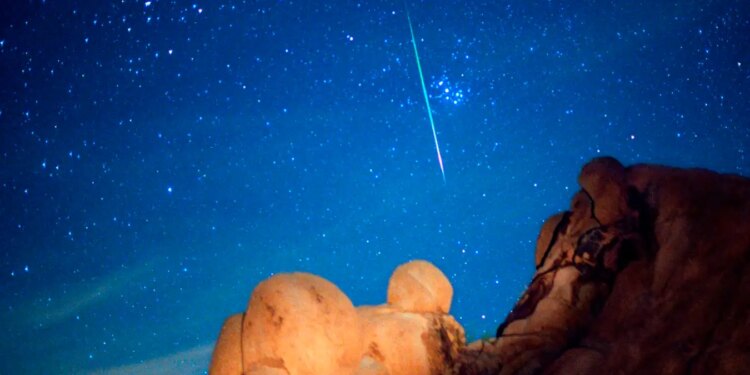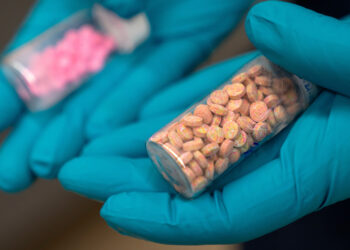
“This year, the Leonid meteor shower is timed almost perfectly with a new moon…”
WALTER PACHOLKA, ASTROPICS/SCIENCE PHOTO LIBRARY
There is something magical about watching a meteor shower. Part of this is down to the shower’s unpredictability – the conditions can appear perfect, yet you may still end up underwhelmed, especially when you are promised hundreds of meteors an hour. But then there are times when you gather friends around to enjoy the show together, and you are happy to see just a handful of shooting stars.
This year, the Leonid meteor shower is timed almost perfectly with a new moon, giving us a wonderful chance to see plenty of meteors zipping across the sky. There may not be hundreds each hour, but I would still recommend trying to have a look.
Meteor showers happen at about the same time every year, because they coincide with Earth’s path around the sun bringing us through patches of debris left behind by passing comets and asteroids. This causes more pieces of dust than usual to enter our atmosphere, where they burn up in the bright flashes of meteors.
The Leonid meteor shower comes from the dust left behind by Tempel-Tuttle, a comet 3.6 kilometres in diameter that orbits the sun every 33 years. When it comes close by, the Leonids become a meteor storm rather than a meteor shower, with thousands of meteors visible every hour. The last storm was in 2002, so we can’t expect another for 10 years.
Even so, there should be a great chance to see meteors like the one pictured if you are lucky enough to have clear skies. The Leonid meteor shower starts on 6 November and will be active until the end of the month, but the peak is on the evening of 17 November, into the morning of the 18th. November’s new moon is on the 20th, so on the evening of the shower’s peak, it will be a very thin waning crescent. The best time to look will be just after midnight local time, wherever you live in the world. Compared with other meteor showers, the Leonids tend to have a gradual peak, so it is worth looking on the days around the 17th if you have a clear night on either side.
Meteor showers are named after the constellation the meteors appear to come from in the sky, but this doesn’t mean you have to find Leo to see the Leonids. Leo is an easy constellation to spot, though, and is visible from most of the world, other than extremely southern latitudes. To find Leo, look for its iconic backwards question mark, or sickle pattern. It will be near the Plough, or Big Dipper, in the sky. If you need extra help finding it, you can use an app on your phone.
To best enjoy a meteor shower, first get warm and comfortable. The show can involve sitting still for a long time, so I recommend a hot water bottle and a way to look up without hurting your neck. Get as far from light pollution as you can. But if you want to look from your house, turn off the lights and let your eyes adjust. Enjoy!
These articles are posted each week at
newscientist.com/maker
Abigail Beall is a features editor at New Scientist and author of The Art of Urban Astronomy. Follow her @abbybeall
Source link : https://www.newscientist.com/article/mg26835680-700-heres-how-to-spot-the-leonid-meteor-shower-this-month/?utm_campaign=RSS%7CNSNS&utm_source=NSNS&utm_medium=RSS&utm_content=home
Author :
Publish date : 2025-11-05 18:00:00
Copyright for syndicated content belongs to the linked Source.










